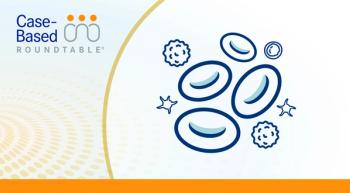
Dr. Nazha on a Mutational Model to Predict Response to Hypomethylating Agents in MDS
Aziz Nazha, MD, discusses a new mutational model to predict response to hypomethylating agents in myelodysplastic syndromes (MDS).
Aziz Nazha, MD, hematologist, medical oncologist, Cleveland Clinic, Taussig Cancer Institute, discusses a new mutational model to predict response to hypomethylating agents in myelodysplastic syndromes (MDS), which was presented at the Society of Hematologic Oncology (SOHO) 2015 Annual Meeting.
Nazha and his colleagues treated 122 patients with MDS and myeloid malignancies between 2000 and 2012. Patients were given azacitidine or decitabine for at least four cycles. Using a panel of 62 gene mutations, Nazha and his team looked at patients and divided them between responders and nonresponders; responders being those who achieved complete remission, partial remission, or hematologic improvements.
By looking at the mutation distribution between each group, it was found that mutations, such as IDH1 and IDH2, had higher prevalence among responders, says Nazha. ASXL1 mutations were more prevalent in nonresponders.








































